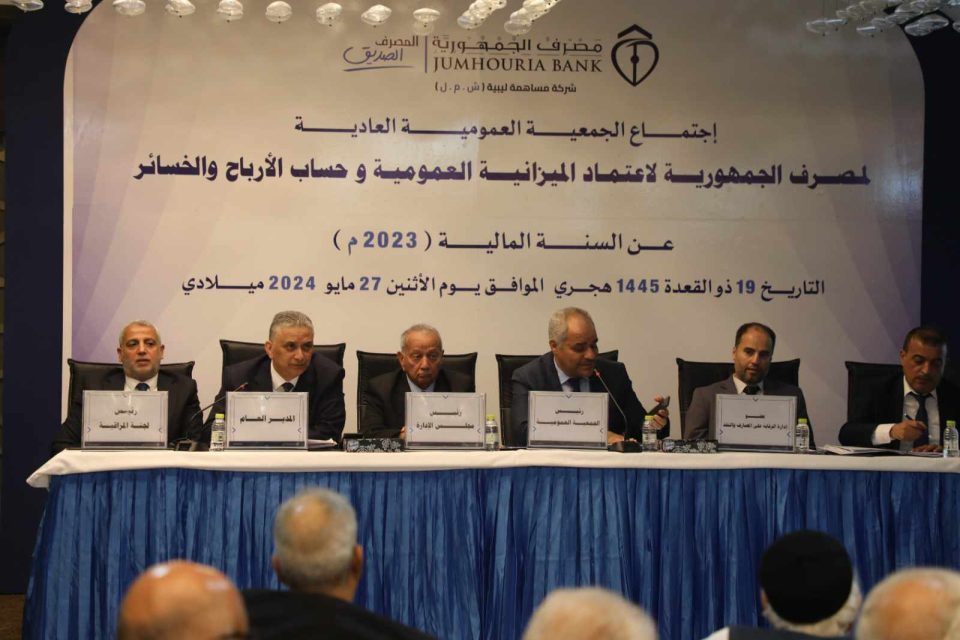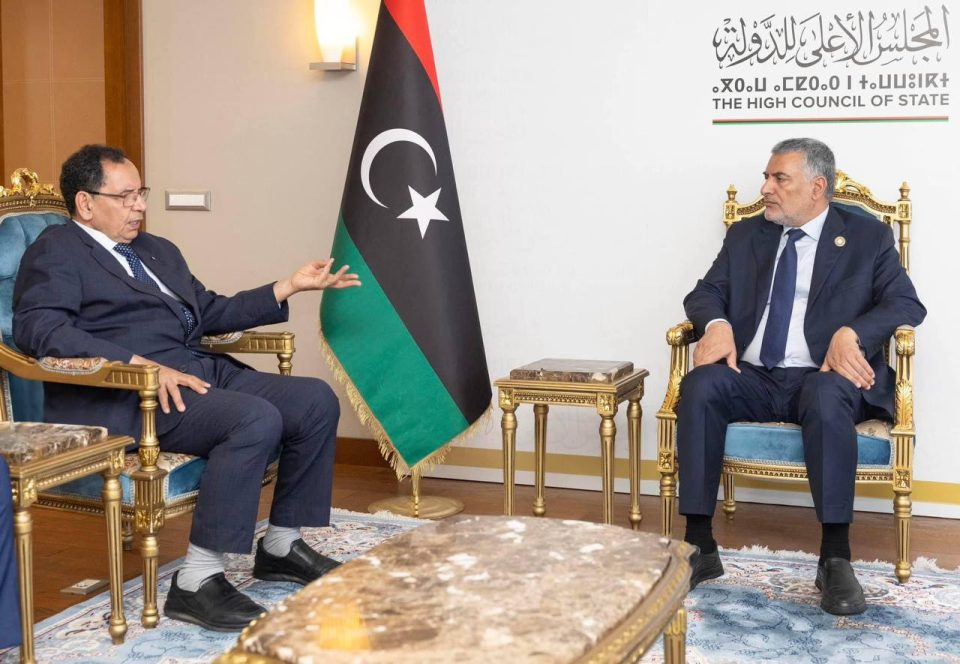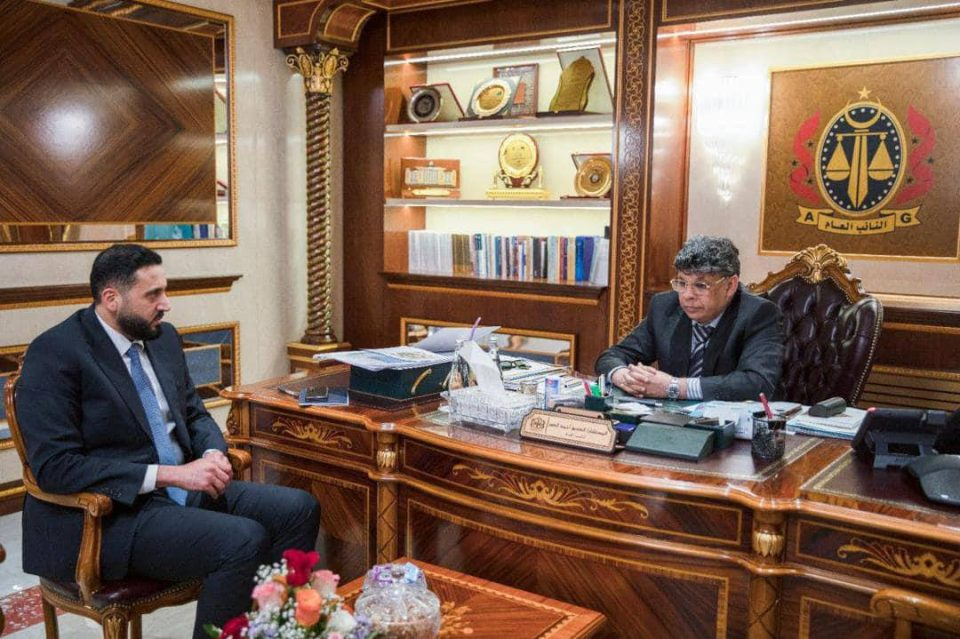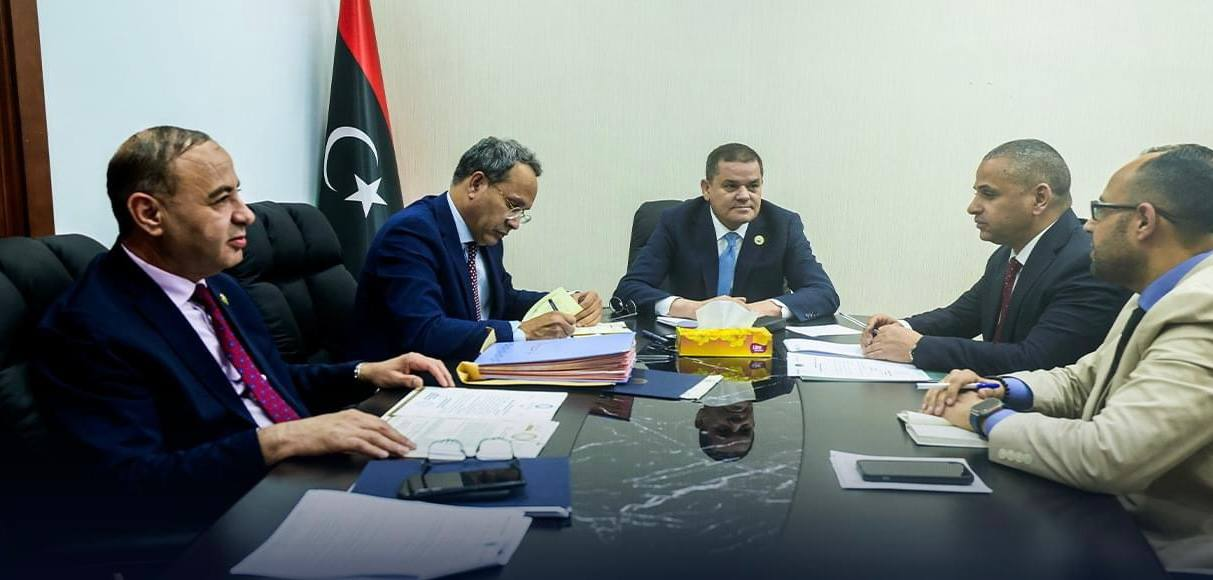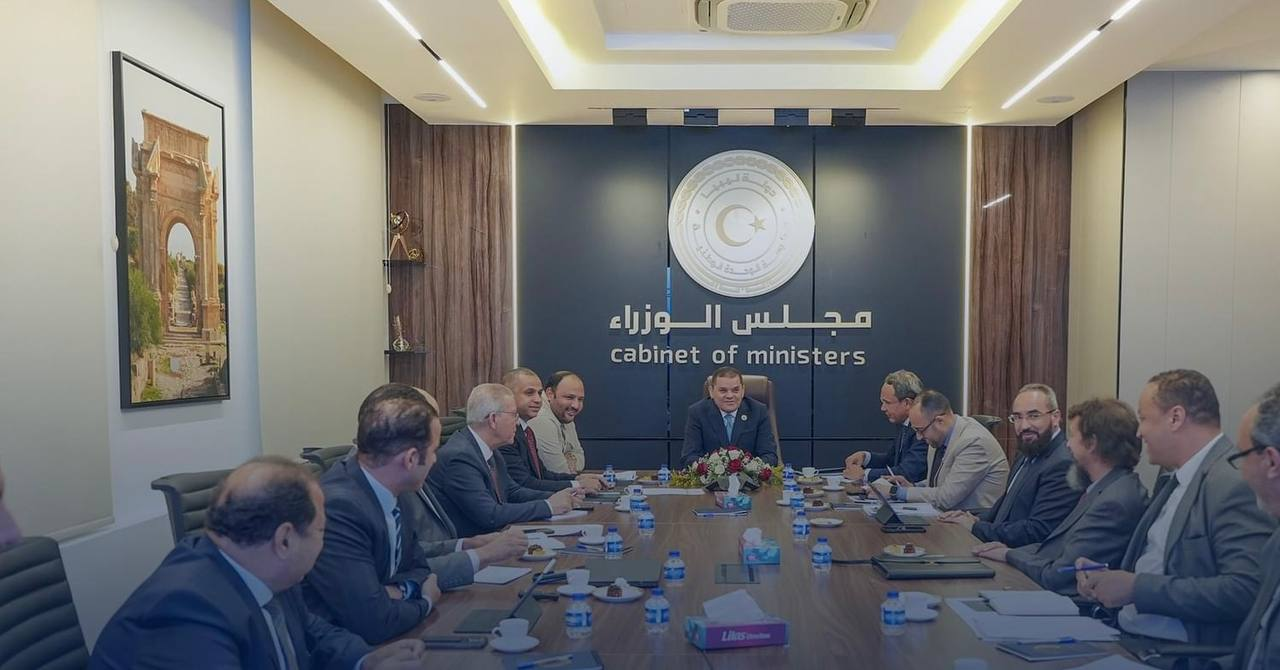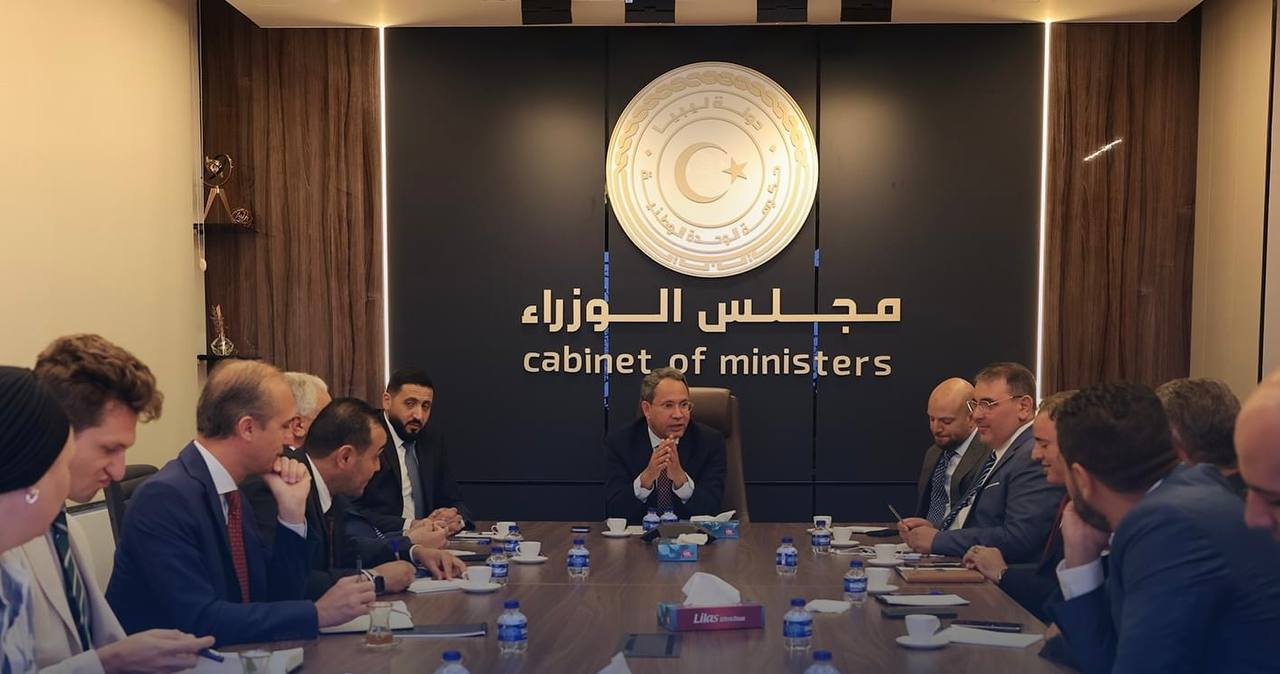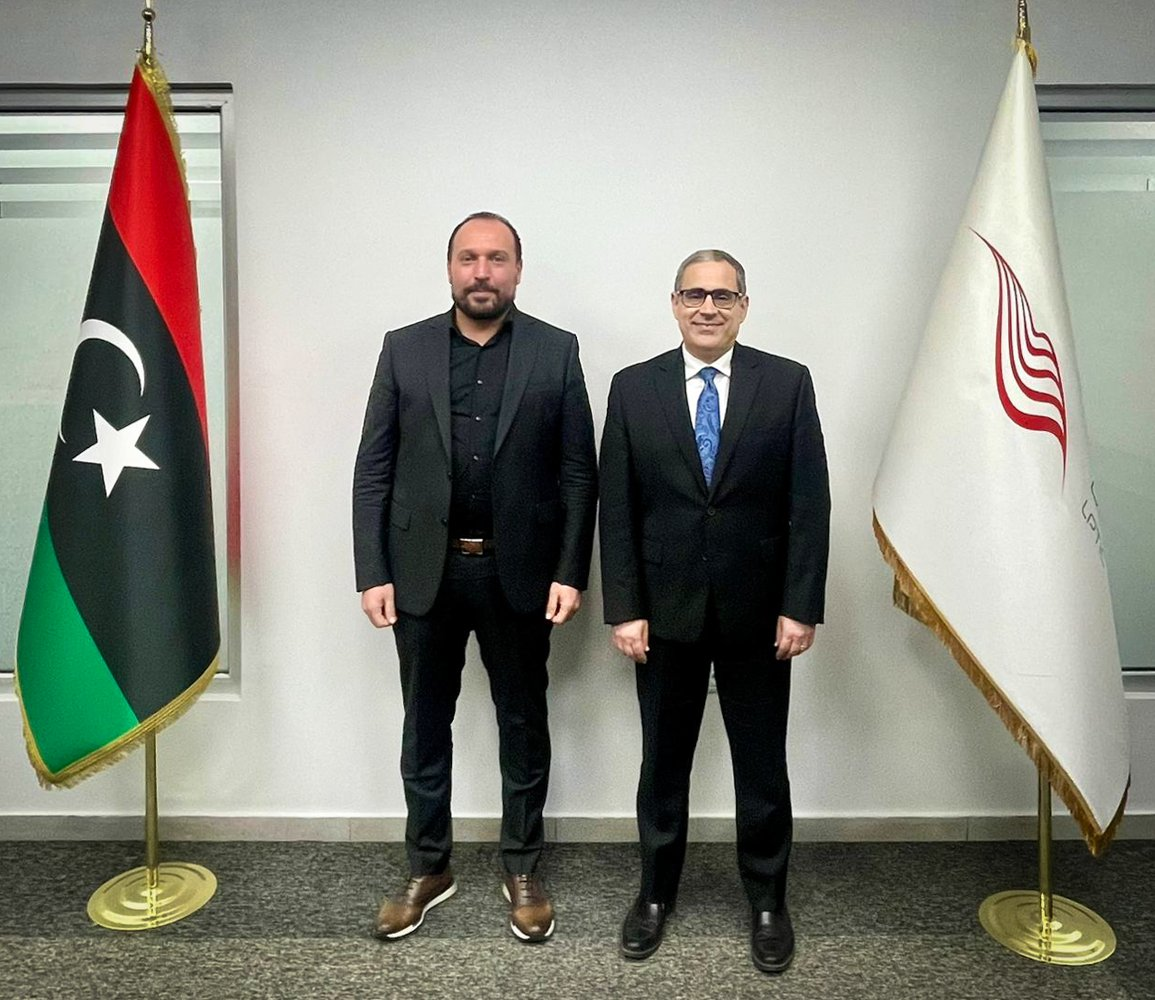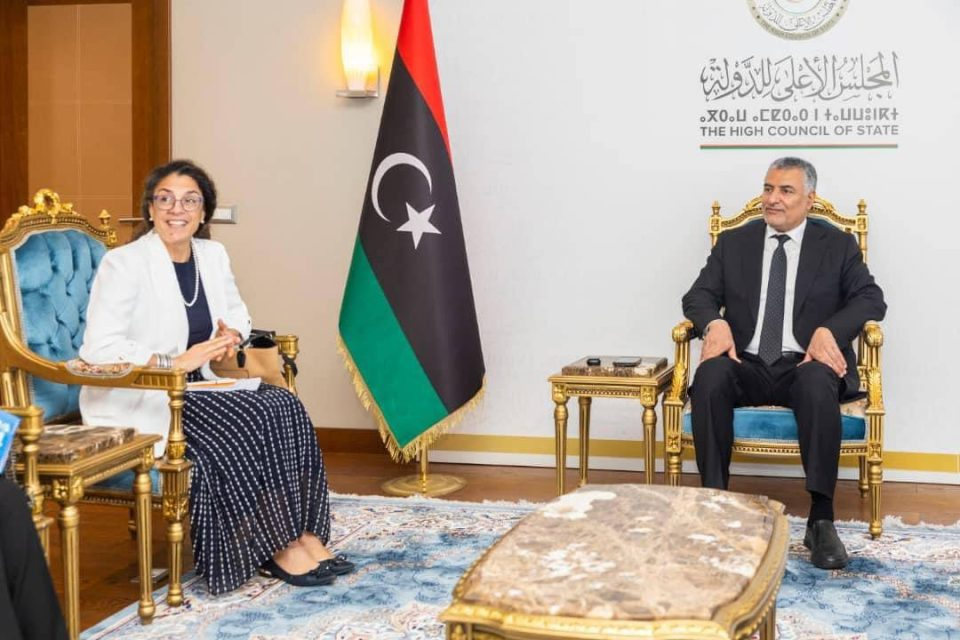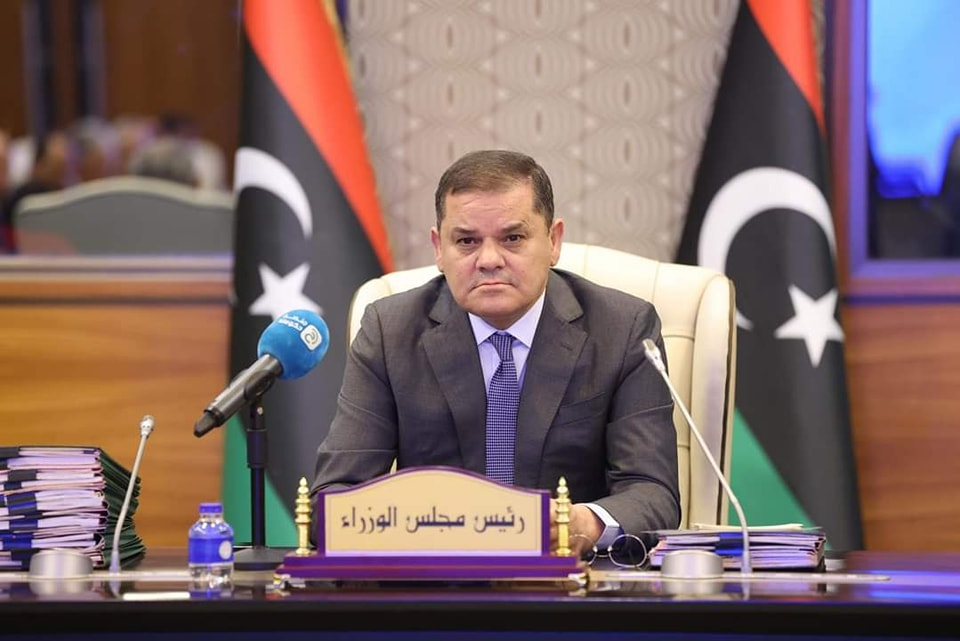Prime Minister of the Government of National Unity, Abdul Hamid Dbeibeh, followed up during his meeting with the personal envoy of the Prime Minister in Africa and the Minister of Youth on the situation of Libyan investments in the African continent.
Attending the meeting were the Chairman and members of the Board of Directors of the Libyan Investment Corporation, the Director-General of the Foreign Bank, the Chairman of the Board of Directors of Libya Africa Portfolio, the directors of the portfolio’s subsidiaries, the Director of Institutions and Cooperation at the Ministry of Finance, the Head of the Foreign Disputes Department at the Issues Directorate, and the Minister of State for Cabinet Affairs.
The General Manager of Libya Africa Portfolio, Mohamed Al-Milady, presented a visual presentation covering the portfolio’s activities in Africa and the difficulties and problems it faces in each country, considering the government’s interest in recent years in the issues raised against the portfolio by some countries and the assignment of government ministers related to coordinate with the Issues Directorate to follow up on these issues in coordination with the Libyan Investment Corporation with the aim of addressing some points politically and economically, considering that the current situation of the portfolio is positive compared to previous years.
Al-Milady clarified that what happened in Burkina Faso concerns the Foreign Bank of Libya and does not fall under the Libyan Investment Corporation.
On his part, the Consul and Director of the Foreign Bank presented a position regarding the contributions of the Foreign Bank in the African continent, indicating that the contributions of the Foreign Bank amount to 7 contributions in non-Arab African countries through the Commercial Bank of Niger and Equatorial Limited in Uganda, the Commercial Coast in Mali, the Burkinabe Commercial, the Chari Bank in Chad, the Banking Company across Africa in Togo, and the Zimbabwean Holding Company in Zimbabwe.
Dbeibeh also explained that the risks threatening investments in Africa are insufficient, capital controls, and nationalization used by several African countries without official legal procedures, the expiration of granted licenses, in addition to various issues with contractors, banks, and government partners in most African countries.
The Prime Minister directed the necessity of continuing serious and continuous legal work, in cooperation with international legal offices, and establishing partnerships with credible parties under good conditions, considering this the first choice at this stage.



